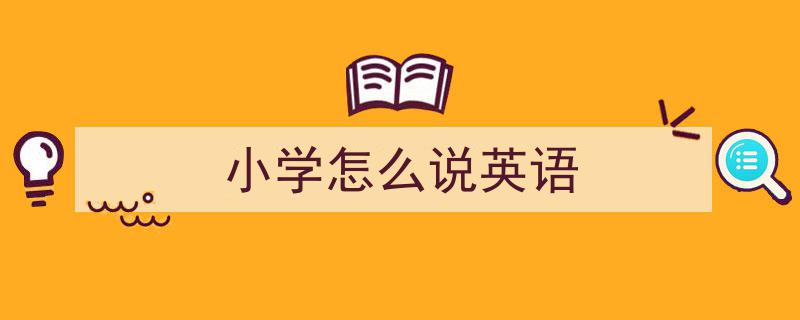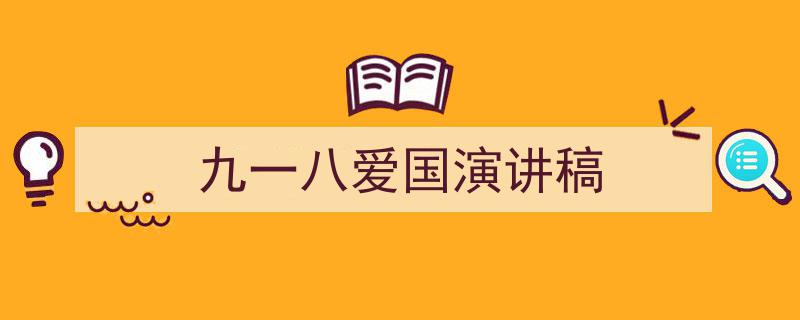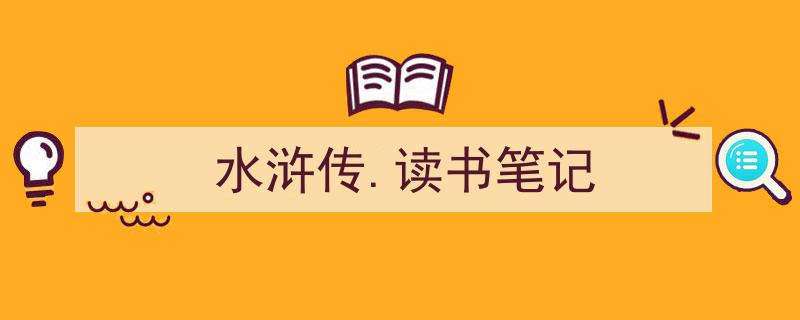欢迎来到58原创网网
精心挑选《小学英语动词填空》相关文章文案。(精选5篇)
更新日期:2025-08-20 11:00

写作核心提示:
这是一篇关于小学英语动词填空题应该注意哪些事项的作文:
"小学英语动词填空题应注意的事项"
在小学英语学习的旅途中,动词填空题是一个常见的练习形式。它不仅考察我们对动词基本形式的掌握,还检验我们运用动词进行时态、语态、人称和数的变化能力。做好这类题目,需要我们多观察、多思考、多积累。以下是一些在做小学英语动词填空题时应该注意的事项:
"一、 仔细审题,判断词义和语境"
每道填空题都嵌入在一个具体的句子或语境中。第一步也是最重要的一步,就是要仔细阅读整个句子,理解句子的主要意思。然后,根据上下文来判断空格处需要填入一个具有何种含义的动词。例如,是表示动作的进行(doing something),还是表示状态(being something)?是表示过去发生的事情,还是现在或将来正在发生的事情?错误的词义理解是导致填空错误的主要原因之一。
"二、 留意动词的形式变化"
英语动词的变化非常丰富,尤其是在不同的人称(I, you, he/she/it, we, they)、数(单数、复数)以及时态(一般现在时、一般过去时、一般将来时、进行时等)中。填空题往往就是围绕这些变化来设计的。 "人称和数的变化:" 要注意主语
小升初英语语法复习及习题
时间名词前所用介词的速记歌
年月周前要用in,日子前面却不行。
遇到几号要用on,上午下午又是in。
要说某日上下午,用on换in才能行。
午夜黄昏须用at,黎明用它也不错。
at也用在明分前,说“差”可要用上to,
说“过”只可使用past,多说多练牢牢记,
莫让岁月空蹉跎。
下面就时间概念的介词用法做一简要介绍和比较。
1.at表示时间概念的某一个点。(在某时刻、时间、阶段等)。
at 1:00(dawn,midnight,noon)在一点钟(黎明、午夜、中午)
these are our chief tasks at the present stage.这些就是我们现阶段的主要任务。
2.on
1)表示具体日期。
they arrived in shanghai on may
25.他们在五月二十五日到达上海。
注:(1)关于"在周末"的几种表示法:
at(on)the weekend在周末---特指
at(on)weekends在周末---泛指
over the weekend在整个周末
during the weekend在周末期间
(2)在圣诞节,应说"at christmas而不说"on christmas
2)在(刚……)的时候。
on reaching the city he called up his parents.一到城里他就给父母打了一个电话。
3.in
1)表示"时段"、"时期",在多数情况下可以和dur- ing互换,前者强调对比,后者强调持续。 in(during)1988(december,the 20th century)在一九八八年(十二月、二十世纪)
i returned to beijing in the middle of june.我是六月中回北京的。 但如果表示"在某项活动的期间",则只能用during。
during my military service(the trip)在我服役期间(在旅行期间)
2)表示以说话时间为基点的"(若干时间)以后",常用作将来时态谓语的时间状语。如这时要表示"(若干时间)内",常用within。比较:
the meeting will end in 30minutes.(三十分钟后)会议三十分钟后结束。
can you finish it within 30minutes?(三十分钟内)你能在三十分钟之内完成这件事吗?
但在过去时态中,in可用于表"在若干时间以内",这时不要误用during。 the job was done during a week.(wrong)
the job was done in a week.(right)这工作在一星期内就完成了。
4.after表示"在(某具体时间)以后",注意不要和in的2)意混淆。
after supper(8o’clock,the war)晚饭(八点、战)后 比较:he will be back in two hours.他将在两个小时以后回来。
he returned tohis hometown after the war.战后他回到了故乡。 5.for表示"(动作延续)若干时间",有时可省略。 i stayed in london(for)two days on my way to new york.在去纽约的途中,我在伦敦呆了两天。
6.since表示"自(某具体时间)以来",常用作完成时态谓语的时间状语。
since liberation(1980)自从解放(1980年)以来 they have been close friends since childhood.他们从小就是好朋友。 注:
(1)since the war是指"自从战争结束以来",若指"自从战争开始以来",须说"since the beginning of the war"。
(2)不要将since与after混淆。 比较:he has worked here since 1965.(指一段时间,强调时间段)自从1965年以来,他一直在这儿工作。 he began to work here after 1965.(指一点时间,强调时间点)从1965年以后,他开始在这儿工作。
7.by表示"到……的时候",其谓语时态的用法:动作动词常用完成时态;状态动词(be)常用一般时态。
比较:
by noon,everybody had(will have)arrived there. by noon,everybody were(will be)there. 到中午的时候,大家都(将)到那儿了。 以上探讨了介词表示时间概念时的用法和比较,上述介词除表示时间概念外还有其他的用法,英语学习者必须掌握其各种用法,才能灵活运用,提高自己的语言能力。
小学英语语法复习要点(一)
一、名词复数规则
1.一般情况下,直接加-s,如:book-books, bag-bags, cat-cats, bed-beds
2.以s. x. sh. ch结尾,加-es,如:bus-buses, box-boxes, brush-brushes,
watch-watches
3.以“辅音字母+y”结尾,变y为i, 再加-es,如:family-families, strawberry-strawberries
4.以“f或fe”结尾,变f或fe为v, 再加-es,如:knife-knives
5.不规则名词复数:
man-men, woman-women, policeman-policemen, policewoman-policewomen, mouse-mice
child-children
foot-feet,.tooth-teeth
fish-fish, people-people, Chinese-Chinese, Japanese-Japanese
写出下列各词的复数
I _________him _________this ___________her ______
watch _______child _______photo ________diary ______
day________ foot________ book_______ dress ________
tooth_______ sheep ______box_______ strawberry _____
thief _______yo-yo ______ peach______ sandwich ______
man______ woman_______ paper_______ juice___________
water________ milk________ rice__________ tea__________
二、一般现在时
一般现在时基本用法介绍
【No. 1】一般现在时的功能
1.表示事物或人物的特征、状态。如:The sky is blue.天空是蓝色的。
2.表示经常性或习惯性的动作。如:I get up at six every day.我每天六点起床。
3.表示客观现实。如:The earth goes around the sun.地球绕着太阳转。
一般现在时的构成
1. be动词:主语+be(am,is,are)+其它。如:I am a boy.我是一个男孩。
2.行为动词:主语+行为动词(+其它)。如:
We study English.我们学习英语。
当主语为第三人称单数(he, she,it)时,要在动词后加"-s"或"-es"。如:Mary likes Chinese.玛丽喜欢汉语。
一般现在时的变化
1. be动词的变化。
否定句:主语+ be + not +其它。
如:He is not a worker.他不是工人。
一般疑问句:Be +主语+其它。
如:-Are you a student?
-Yes. I am. / No, I'm not.
特殊疑问句:疑问词+一般疑问句。如:Where is my bike?
2.行为动词的变化。
否定句:主语+ don't( doesn't ) +动词原形(+其它)。如:
I don't like bread.
当主语为第三人称单数时,要用doesn't构成否定句。如:
He doesn't often play.
一般疑问句:Do( Does ) +主语+动词原形+其它。如:
- Do you often play football?
- Yes, I do. / No, I don't.
当主语为第三人称单数时,要用does构成一般疑问句。如:
- Does she go to work by bike?
- Yes, she does. / No, she doesn't.
特殊疑问句:疑问词+一般疑问句。如:How does your father go to work?
动词+s的变化规则
1.一般情况下,直接加-s,如:cook-cooks, milk-milks
2.以s. x. sh. ch. o结尾,加-es,如:guess-guesses, wash-washes, watch-watches, go-goes
3.以“辅音字母+y”结尾,变y为i, 再加-es,如:study-studies
一般现在时用法专练:
一、 写出下列动词的第三人称单数
drink ________ go _______ stay ________ make ________
look _________ have_______ pass_______ carry ____
come________ watch______ plant_______ fly ________
study_______ brush________ do_________ teach_______
二、用括号内动词的适当形式填空。
1. He often ________(have) dinner at home.
2. Daniel and Tommy _______(be) in Class One.
3. We _______(not watch) TV on Monday.
4. Nick _______(not go) to the zoo on Sunday.
5. ______ they ________(like) the World Cup?
6. What _______they often _______(do) on Saturdays?
7. _______ your parents _______(read) newspapers every day?
8. The girl _______(teach) us English on Sundays.
9. She and I ________(take) a walk together every evening.
10. There ________(be) some water in the bottle.
11. Mike _______(like) cooking.
12. They _______(have) the same hobby.
13. My aunt _______(look) after her baby carefully.
14. You always _______(do) your homework well.
15. I _______(be) ill. I’m staying in bed.
16. She _______(go) to school from Monday to Friday.
17. Liu Tao _______(do) not like PE.
18. The child often _______(watch) TV in the evening.
19. Su Hai and Su Yang _______(have) eight lessons this term.
20. -What day _______(be) it today?
- It’s Saturday.
三、按照要求改写句子
1. Daniel watches TV every evening.(改为否定句)
___________________________________________________
2. I do my homework every day.(改为一般疑问句,作否定)
________________________________________________________
____________________________
3. She likes milk.(改为一般疑问句,作肯定)
_______________________________________________________
____________________________
4. Amy likes playing computer games.(改为一般疑问句,作否定)
________________________________________________________
____________________________________
5. We go to school every morning.(改为否定句)
_______________________________________________________
6. He speaks English very well.(改为否定句)
___________________________________________________
7. I like taking photos in the park.(对划线部分提问)
________________________________________________________
8. John comes from Canada.(对划线部分提问)
___________________________________________________
9. She is always a good student.(改为一般疑问句,作否定)
________________________________________________________
________________________________
10. Simon and Daniel like going skating.(改为否定句)
___________________________________________________
五、改错(划出错误的地方,将正确的写在横线上)
1. Is your brother speak English? __________________
2. Does he likes going fishing? __________________
3. He likes play games after class. __________________
4. Mr. Wu teachs us English. __________________
5. She don’t do her homework on Sundays. _________________
三、现在进行时
1.现在进行时表示现在正在进行或发生的动作,也可表示当前一段时间内的活动或现阶段正在进行的动作。
2.现在进行时的肯定句基本结构为be+动词ing.
3.现在进行时的否定句在be后加not。
4.现在进行时的一般疑问句把be动词调到句首。
5.现在进行时的特殊疑问的基本结构为:
疑问词不达意 + be + 主语 + 动词ing?
但疑问词当主语时其结构为:
疑问词不达意 + be + 动词ing?
动词加ing的变化规则
1.一般情况下,直接加ing,如:cook-cooking
2.以不发音的e结尾,去e加ing,如:make-making, taste-tasting
3.如果末尾是一个元音字母和一个辅音字母,双写末尾的辅音字母,再加ing,如:run-running, stop-stopping
现在进行时专项练习:
一、写出下列动词的现在分词:
play________ run__________ swim _________make__________
go_________ like________ write________ _ski___________
read________ have_________ sing ________ dance_________
put_________ see________ buy _________ love____________
live_______ take_________ come ________ get_________
stop_________ sit ________ begin________ shop___________
二、用所给的动词的正确形式填空:
1.The boy __________________ ( draw)a picture now.
2. Listen .Some girls _______________ ( sing)in the classroom .
3. My mother _________________ ( cook )some nice food now.
4. What _____ you ______ ( do ) now?
5. Look . They _______________( have) an English lesson .
6.They ____________(not ,water) the flowers now.
7.Look! the girls ________________(dance )in the classroom .
8.What is our granddaughter doing? She _________(listen ) to music.
9. It’s 5 o’clock now. We _____________(have)supper now
10.______Helen____________(wash )clothes? Yes ,she is .
三、句型转换:
1. They are doing housework .(分别改成一般疑问句和否定句)
_____________________________________________________________
_____________________________________________________________
2.The students are cleaning the classroom . ( 改一般疑问句并作肯定和否定)
__________________________________________________________________________________________________________________________________
3.I’m playing the football in the playground .(对划线部分进行提问)
_________________________________________________________________
4.Tom is reading books in his study . (对划线部分进行提问)
_________________________________________________________________
四、将来时理论及练习
一、概念:表示将要发生的动作或存在的状态及打算、计划或准备做某事。句中一般有以下时间状语:tomorrow, next day(week, month, year…),soon, the day after tomorrow(后天)等。
二、基本结构:①be going to + do;
②will+ do.
三、否定句:在be动词(am, is, are)l后加not或情态动词will后加not成won’t。
例如:I’m going to have a picnic this afternoon.→ I’m not going to have a picnic this afternoon.
四、一般疑问句: be或will提到句首,some改为any, and改为or,第一二人称互换。
例如:We are going to go on an outing this weekend. → Are you going to go on an outing this weekend?
五、对划线部分提问。一般情况,一般将来时的对划线部分有三种情况。
1. 问人。Who 例如:I’m going to New York soon. →Who’s going to New York soon.
2. 问干什么。What … do.例如: My father is going to watch a race with me this
afternoon. →What is your father going to do with you this afternoon.
3. 问什么时候。When.例如:She’s going to go to bed at nine. →When is she going to bed?
六、同义句:be going to = will
I am going to go swimming tomorrow(明天). = I will go swimming tomorrow.
填空。
1. 我打算明天和朋友去野炊。
I_____ _______ _________ have a picnic with my friends.
I ________ have a picnic with my friends.
2. 下个星期一你打算去干嘛? 我想去打篮球。
What ________ ________ _________ _________ _________ next Monday?
I _______ ______ _____ play basketball.
What _________ you do next Monday? I ________ play basketball.
3. 你妈妈这个周末去购物吗?是,她要去买一些水果。
_____ your mother _______ ________ go shopping this ___________?
Yes, she _________. She ______ ________ __________ buy some fruit.
4. 你们打算什么时候见面。
What time _______ you _________ __________ meet?
改句子。
5. Nancy is going to go camping.(改否定)
Nancy ________ going to go camping.
6. I’ll go and join them.(改否定)
I _______ go ______ join them.
7. I’m going to get up at 6:30 tomorrow.(改一般疑问句)
________ _______ ________ to get up at 6:30 tomorrow?
8. We will meet at the bus stop at 10:30.(改一般疑问句)
_______ ________ meet at the bus stop at 10:30.
9. She is going to listen to music after school.(对划线部分提问)
________ _______ she ________ ________ _________ after school?
10. My father and mother are going to see a play the day after tomorrow.(同上)
_________ _________ going to see a play the day after tomorrow.
用所给词的适当形式填空。
11. Today is a sunny day. We ___________________ (have) a picnic this afternoon.
12. My brother _______________ (go) to Shanghai next week.
13. Tom often ______________(go) to school on foot. But today is rain. He ______________ (go) to school by bike.
14. What do you usually do at weekends? I usually __________ (watch) TV and ____________(catch) insects?
15. It’s Friday today. What _____she _________ (do) this weekend? She ______________ (watch) TV and _____________ (catch) insects.
16. What ___________ (d0) you do last Sunday? I ____________ (pick) apples on a farm. What ______________ (do) next Sunday? I ______________ (milk) cows.
17. Mary ____________ (visit) her grandparents tomorrow.
18. Liu Tao ____________ (fly) kites in the playground yesterday.
19. David ______________ (give) a puppet show next Monday.
20. I ________________ (plan) for my study now.
五、一般过去时
1.一般过去时表示过去某个时间发生的动作或存在的状态,常和表示过去的时间状语连用。一般过去时也表示过去经常或反复发生的动作感谢。
2.Be动词在一般过去时中的变化:
⑴am 和is在一般过去时中变为was。(was not=wasn’t)
⑵are在一般过去时中变为were。(were not=weren’t)
⑶带有was或were的句子,其否定、疑问的变化和is, am, are一样,即否定句在was或were后加not,一般疑问句把was或were调到句首。
3.句中没有be动词的一般过去时的句子
否定句:didn’t +动词原形,如:Jim didn’t go home yesterday.
一般疑问句:在句首加did,句子中的动词过去式变回原形。
如:Did Jim go home yesterday?
特殊疑问句:⑴疑问词+did+主语+动词原形?
如: What did Jim do yesterday?
⑵疑问词当主语时:疑问词+动词过去式?
如:Who went to home yesterday?
动词过去式变化规则:
1.一般在动词末尾加-ed,如:pull-pulled, cook-cooked
2.结尾是e加d,如:taste-tasted
3.末尾只有一个元音字母和一个辅音字母的重读闭音节,应双写末尾的辅音字母,再加-ed,如:stop-stopped
4.以“辅音字母+y”结尾的,变y为i, 再加-ed,如:study-studied
过去时练习
写出下列动词的过去式
isam_________ fly_______ plant________ are ________
drink_________ play_______ go________ make ________
does_________ dance________ worry________ ask _____
taste_________ eat__________ draw________ put ______
throw________ kick_________ pass_______ do ________
Be动词的过去时练习(1)
一、 用be动词的适当形式填空
1. I _______ at school just now.
2. He ________ at the camp last week.
3. We ________ students two years ago.
4. They ________ on the farm a moment ago.
5. Yang Ling ________ eleven years old last year.
6. There ________ an apple on the plate yesterday.
7. There ________ some milk in the fridge on Sunday.
8. The mobile phone _______ on the sofa yesterday evening.
二、 句型转换
1. It was exciting.
否定句:
________________________________________________
一般疑问句:
____________________________________________
肯、否定:
__________________________________________
2. All the students were very excited.
否定句:
________________________________________________
一般疑问句:
____________________________________________
肯、否定:
__________________________________________
3. They were in his pocket.
否定句:
________________________________________________
一般疑问句:
____________________________________________
肯、否定:
__________________________________________
Be动词的过去时练习(2)
一、用be动词的适当形式填空
1. I ______ an English teacher now.
2. She _______ happy yesterday.
3. They _______ glad to see each other last month.
4. Helen and Nancy ________ good friends.
5. The little dog _____ two years old this year.
6. Look, there ________ lots of grapes here.
7. There ________ a sign on the chair on Monday..
8. Today _____ the second of June. Yesterday ______ the first of June. It _____ Children’s Day. All the students ______ very excited.
二、句型转换
1. There was a car in front of the house just now.
否定句:
________________________________________________
一般疑问句:
____________________________________________
肯、否定:
__________________________________________
肯、否定:
__________________________________________
三、 中译英
1.我的故事书刚才还在手表旁边。
___________________________________________________________
2.他们的外套上个礼拜放在卧室里了。
___________________________________________________________
3.一会以前花园里有两只小鸟。
___________________________________________________________
行为动词的过去时练习(1)
一、用行为动词的适当形式填空
1. He _________ (live) in Wuxi two years ago.
2. The cat ________ (eat) a bird last night.
3. We _______ (have) a party last Halloween.
4. Nancy ________ (pick) up oranges on the farm last week.
5. I ________ (make) a model ship with Mike yesterday.
6. They ________ (play) chess in the classroom last PE lesson.
7. My mother _______ (cook) a nice food last Spring Festival.
8. The girls ________ (sing) and _______ (dance) at the party.
二、句型转换
1. Su Hai took some photos at the Sports day.
否定句:
________________________________________________
一般疑问句:
____________________________________________
肯、否定:
__________________________________________
2. Nancy went to school early.
否定句:
________________________________________________
一般疑问句:
____________________________________________
肯、否定:
__________________________________________
3. We sang some English songs.
否定句:
________________________________________________
一般疑问句:
____________________________________________
肯、否定:
__________________________________________
行为动词的过去时练习(2)
Name ____________ No. ______ Date __________
一、用be动词的适当形式填空
1. I ______ (watch) a cartoon on Saturday.
2. Her father _______ (read) a newspaper last night.
3. We _________ to zoo yesterday, we _____ to the park. (go)
4. ______ you _______ (visit) your relatives last Spring Festival?
5. ______ he _______ (fly) a kite on Sunday? Yes, he ______.
6. Gao Shan _______ (pull) up carrots last National Day holiday.
7. I ____________ (sweep) the floor yesterday, but my mother ______.
8. What ______ she _______ (find) in the garden last morning? She __________ (find) a beautiful butterfly.
二、句型转换
1. They played football in the playground.
否定句:
________________________________________________
一般疑问句:
____________________________________________
肯、否定:
__________________________________________
三、中译英
1. 格林先生去年住在中国。
2. 昨天我们参观了农场。
3. 他刚才在找他的手机。
________________________________________________________
过去时综合练习(1)
一、 用动词的适当形式填空
1. It ______ (be) Ben’s birthday last Friday.
2. We all ______ (have) a good time last night.
3. He ________ (jump) high on last Sports Day.
4. Helen ________ (milk) a cow on Friday.
5. She likes ______ newspapers, but she ______ a book yesterday. (read)
6. He _______ football now, but they _______ basketball just now. (play)
7. Jim’s mother _________ (plant) trees just now.
8. _______ they ________ (sweep) the floor on Sunday? No, they _____.
9. I _______ (watch) a cartoon on Monday.
10. We ___________ (go) to school on Sunday.
二、 中译英
1. 我们上周五看了一部电影。
_________________________________________________________
2. 他上个中秋节走亲访友了吗?是的。
_________________________________________________________
3. 你们上个儿童节做了什么?我们参观了动物园。
_________________________________________________________
4. 你上周在哪儿?在野营基地。
_________________________________________________________
过去时综合练习(2)
Name ____________ No. ______ Date __________
一、 用动词的适当形式填空
1. It _____ (be) the 2nd of November yesterday.
Mr White ________ (go) to his office by car.
2. Gao Shan ________ (put) the book on his head a moment ago.
3. Don’t ______ the house. Mum _______ it yesterday. (clean)
4. What ____ you ______ just now? I _______ some housework. (do)
5. They _________ (make) a kite a week ago.
6. I want to ______ apples. But my dad _______ all of them last month. (pick)
7. _______ he ______ the flowers this morning? Yes, he _____. (water)
8. She ____ (be) a pretty girl. Look, she _____ (do) Chinese dances.
9. The students often _________ (draw) some pictures in the art room.
10.What ______ Mike do on the farm? He ________ cows. (milk)
二、中译英
1. 他的朋友在照看他的弟弟。
_________________________________________________________
2. 去年端午节我们没去看了龙舟比赛。
_________________________________________________________
3. 他在音乐课上拉小提琴了吗?不,没有。
_________________________________________________________
中考英语必备各类系动词选择填空专练附参考答案解析
中考英语系动词选择填空专练
1. The flowers in the garden ______ very beautiful.
A. look B. feels C. tastes D. sounds
2. The milk in the glass ______ sour.
A. is smelt B. smells C. is tasting D. tasted
3. The music ______ very wonderful. I like it very much.
A. listens B. hears C. sounds D. listens to
4. The story ______ interesting.
A. looks B. hears C. sounds D. listens
5. The silk shirt ______ smooth.
A. is felt B. feels C. is feeling D. felt
6. The dish ______ delicious.
A. tastes B. is tasted C. is tasting D. tasted
7. The old man ______ very happy.
A. is looking B. looks C. is looking like D. looks like
8. The apples on the tree ______ red.
A. are looked B. look C. is looked D. looks
9. My father ______ tired after a day's work.
A. is looking B. looks C. is looking like D. looks like
10. The soup ______ salty. You must have put too much salt in it.
A. tastes B. is tasted C. is tasting D. tasted
11. The girl in red ______ very lovely.
A. looks B. feels C. sounds D. tastes
12. The leaves of the trees ______ green in spring.
A. turn B. gets C. become D. grow
13. It ______ colder and colder.
A. gets B. turns C. becomes D. grows
14. The weather ______ warmer and warmer.
A. is getting B. is turning C. is becoming D. is growing
15. The milk ______ bad. Don't drink it.
A. is gone B. goes C. is going D. went
16. He ______ angry when he heard the news.
A. got B. turned C. became D. grow
17. The days ______ longer in summer.
A. get B. turn C. become D. grow
18. His face ______ red when he made a mistake.
A. got B. turned C. became D. grow
19. The food ______ bad. You can't eat it.
A. goes B. gets C. becomes D. grows
20. The sky ______ dark. It seems to rain.
A. gets B. turns C. becomes D. grows
21. The leaves of the trees ______ yellow in autumn.
A. get B. turn C. become D. grow
22. The boy ______ taller and taller.
A. gets B. turns C. becomes D. grows
23. She ______ a famous singer.
A. became B. turned C. got D. grow
24. The water in the lake ______ clean.
A. is remained B. remains C. is remaining D. remained
25. The problem ______ unsolved.
A. is remained B. remains C. is remaining D. remained
26. The room ______ warm.
A. keeps B. is kept C. is keeping D. kept
27. You should ______ healthy.
A. keep B. be kept C. be keeping D. kept
28. The old man ______ alive after the earthquake.
A. remained B. is remained C. is remaining D. remains
29. The temperature ______ low these days.
A. keeps B. is kept C. is keeping D. kept
30. The shop ______ open until 9 p.m.
A. remains B. is remained C. is remaining D. remained
31. The story ______ true.
A. seems B. is seemed C. is seeming D. seemed
32. She ______ to be happy.
A. seems B. is seemed C. is seeming D. seemed
33. It ______ that he is right.
A. seems B. is seemed C. is seeming D. seemed
34. They ______ to have known each other.
A. seem B. are seemed C. are seeming D. seemed
35. The plan ______ perfect.
A. sounds B. is sounded C. is sounding D. sounded
36. The idea ______ good.
A. looks B. feels C. sounds D. tastes
37. The voice on the phone ______ familiar.
A. sounds B. is sounded C. is sounding D. sounded
38. The music ______ sweet.
A. listens B. hears C. sounds D. listens to
39. The cloth ______ soft.
A. feels B. is felt C. is feeling D. felt
40. The air in the countryside ______ fresh.
A. smells B. is smelt C. is smelling D. smelt
41. The soup ______ good. What's in it
A. tastes B. is tasted C. is tasting D. tasted
42. The fish ______ delicious. I want to eat more.
A. tastes B. is tasted C. is tasting D. tasted
43. The girl ______ like her mother.
A. looks B. feels C. sounds D. tastes
44. The man ______ like a teacher.
A. looks B. feels C. sounds D. tastes
45. The weather today ______ fine.
A. is B. feels C. sounds D. tastes
46. The news ______ exciting.
A. is B. feels C. sounds D. tastes
47. The book ______ interesting.
A. is B. feels C. sounds D. tastes
48. The flowers ______ nice.
A. smell B. is smelt C. is smelling D. smelt
49. The milk ______ good.
A. tastes B. is tasted C. is tasting D. tasted
答案与解析
1. 答案:A
- 解析:look“看起来”,花看起来漂亮,感官系动词后接形容词作表语,flowers为复数,用look。feel“感觉”;taste“尝起来”;sound“听起来”,均不符合语境。
2. 答案:B
- 解析:smell“闻起来”,是感官系动词,没有被动语态,the milk是不可数名词,用smells,句子描述一般状态,用一般现在时。
3. 答案:C
- 解析:sound“听起来”,音乐听起来美妙,listen是不及物动词,hear强调“听到”的结果,listen to后接宾语,此处用sounds。
4. 答案:C
- 解析:sound“听起来”,故事听起来有趣,look“看起来”;hear“听到”;listen“听”,后需接to,所以选C。
5. 答案:B
- 解析:feel“摸起来”,是感官系动词,没有被动语态,the silk shirt是单数,用feels ,句子描述衬衫特性,用一般现在时。
6. 答案:A
- 解析:taste“尝起来”,是感官系动词,没有被动语态,the dish是单数,用tastes,句子描述菜肴味道,用一般现在时。
7. 答案:B
- 解析:look“看起来”,是感官系动词,look happy“看起来开心” ,the old man是单数,用looks,look like“看起来像”不符合语境。
8. 答案:B
- 解析:look“看起来”,是感官系动词,the apples是复数,用look,句子描述苹果状态,用一般现在时。
9. 答案:B
- 解析:look“看起来”,是感官系动词,look tired“看起来疲惫”,my father是单数,用looks,look like“看起来像”不符合语境。
10. 答案:A
- 解析:taste“尝起来”,是感官系动词,没有被动语态,the soup是单数,用tastes,句子描述汤的味道,用一般现在时。
11. 答案:A
- 解析:look“看起来”,是感官系动词,the girl是单数,用looks,look lovely“看起来可爱” ,feel“感觉”;sound“听起来”;taste“尝起来”均不符合。
12. 答案:A
- 解析:turn“变得”,表示颜色变化常用turn,leaves是复数,句子描述自然现象,用一般现在时,get常用于天气、温度变化;become更强调状态变化;grow侧重于生长变化。
13. 答案:A
- 解析:get“变得”,表示天气、温度变化常用get,it是单数,句子描述逐渐变化,用一般现在时,turn侧重于颜色、性质变化;become强调状态变化;grow侧重于生长变化。
14. 答案:A
- 解析:get“变得”,表示天气、温度变化常用get,the weather是单数,句子描述逐渐变化的过程,用现在进行时is getting ,turn侧重于颜色、性质变化;become强调状态变化;grow侧重于生长变化。
15. 答案:B
- 解析:go“变得”,常指事物由好变坏,the milk是不可数名词,用goes,句子描述牛奶变质,用一般现在时。
16. 答案:A
- 解析:get“变得”,get angry“变得生气”,句子是一般过去时,用got,turn侧重于颜色、性质变化;become强调状态变化;grow侧重于生长变化。
17. 答案:A
- 解析:get“变得”,表示时间、季节变化常用get,the days是复数,句子描述自然现象,用一般现在时,turn侧重于颜色、性质变化;become强调状态变化;grow侧重于生长变化。
18. 答案:B
- 解析:turn“变得”,表示颜色变化常用turn,his face是单数,句子描述过去的动作,用一般过去时turned,get常用于天气、温度变化;become更强调状态变化;grow侧重于生长变化。
19. 答案:A
- 解析:go“变得”,常指事物由好变坏,the food是不可数名词,用goes,句子描述食物变质,用一般现在时。
20. 答案:B
- 解析:turn“变得”,表示天色变化常用turn,the sky是单数,句子描述即将下雨时天色变化,用一般现在时turns ,get常用于天气、温度变化;become强调状态变化;grow侧重于生长变化。
21. 答案:B
- 解析:turn“变得”,表示颜色变化常用turn,the leaves是复数,句子描述自然现象,用一般现在时turn ,get常用于天气、温度变化;become强调状态变化;grow侧重于生长变化。
22. 答案:D
- 解析:grow“生长,变得”,强调成长过程中身高变化,the boy是单数,句子描述逐渐变化,用一般现在时grows ,get常用于天气、温度变化;turn侧重于颜色、性质变化;become强调状态变化。
23. 答案:A
- 解析:become“成为”,强调身份、职业的转变,句子是一般过去时,用became,turn后面接职业名词时,名词前不用冠词;get常用于天气、温度变化;grow侧重于生长变化。
24. 答案:B
- 解析:remain“保持,仍然是”,没有被动语态,the water是不可数名词,用remains,句子描述湖水状态,用一般现在时。
25. 答案:B
- 解析:remain“保持,仍然是”,没有被动语态,the problem是单数,用remains,句子描述问题状态,用一般现在时。
26. 答案:A
- 解析:keep“保持”,the room是单数,用keeps,句子描述房间状态,用一般现在时,keep warm“保持温暖”,keep是系动词,没有被动语态。
27. 答案:A
- 解析:keep“保持”,should后接动词原形,keep healthy“保持健康”,keep是系动词,没有被动语态。
28. 答案:A
- 解析:remain“保持,仍然是”,句子是一般过去时,用remained,remain alive“仍然活着” ,remain没有被动语态。
29. 答案:A
- 解析:keep“保持”,the temperature是单数,用keeps,句子描述温度状态,用一般现在时,keep low“保持低水平”,keep是系动词,没有被动语态。
30. 答案:A
- 解析:remain“保持,仍然是”,the shop是单数,用remains,句子描述商店营业时间状态,用一般现在时,remain open“保持营业”,remain没有被动语态。
31. 答案:A
- 解析:seem“似乎,好像”,没有被动语态,the story是单数,用seems,句子描述故事给人的感觉,用一般现在时。
32. 答案:A
- 解析:seem“似乎,好像”,没有被动语态,she是单数,用seems,seem to be happy“似乎很开心”,句子描述她的状态,用一般现在时。
33. 答案:A
- 解析:seem“似乎,好像”,没有被动语态,it是单数,用seems,It seems that...“似乎……”,句子描述一种看法,用一般现在时。
34. 答案:A
- 解析:seem“似乎,好像”,没有被动语态,they是复数,用seem,seem to have known“似乎已经认识”,句子描述他们的状态,用一般现在时。
35. 答案:A
- 解析:sound“听起来”,是感官系动词,没有被动语态,the plan是单数,用sounds,句子描述计划给人的感觉,用一般现在时。
36. 答案:C
- 解析:sound“听起来”,是感官系动词,the idea是单数,用sounds,sound good“听起来不错” ,look“看起来”;feel“感觉”;taste“尝起来”均不符合语境。
37. 答案:A
- 解析:sound“听起来”,是感官系动词,没有被动语态,the voice是单数,用sounds,句子描述电话里声音给人的感觉,用一般现在时。
38. 答案:C
- 解析:sound“听起来”,是感官系动词,the music是单数,用sounds,sound sweet“听起来甜美” ,listen是不及物动词,hear强调“听到”的结果,listen to后接宾语,此处用sounds。
39. 答案:A
- 解析:feel“摸起来”,是感官系动词,没有被动语态,the cloth是单数,用feels ,句子描述布料特性,用一般现在时。
40. 答案:A
- 解析:smell“闻起来”,是感官系动词,没有被动语态,the air是不可数名词,用smells,句子描述乡村空气状态,用一般现在时。
41. 答案:A
- 解析:taste“尝起来”,是感官系动词,没有被动语态,the soup是单数,用tastes,句子描述汤的味道,用一般现在时。
42. 答案:A
- 解析:taste“尝起来”,是感官系动词,没有被动语态,the fish是不可数名词(此处指鱼肉),用tastes,句子描述鱼肉味道,用一般现在时。
43. 答案:A
- 解析:look like“看起来像”,the girl是单数,用looks,句子描述外貌相像,用一般现在时。
44. 答案:A
- 解析:look like“看起来像”,the man是单数,用looks,句子描述外貌相像,用一般现在时。
45. 答案:A
- 解析:is“是”,the weather是单数,用is,句子描述天气状况,用一般现在时。
46. 答案:A
- 解析:is“是”,the news是不可数名词,用is,句子描述消息的性质,用一般现在时。
47. 答案:A
- 解析:is“是”,the book是单数,用is,句子描述书的性质,用一般现在时。
48. 答案:A
- 解析:smell“闻起来”,是感官系动词,没有被动语态,the flowers是复数,用smell,句子描述花的气味,用一般现在时。
49. 答案:A
- 解析:taste“尝起来”,是感官系动词,没有被动语态,the milk是不可数名词,用tastes,
文章说明
本站部分资源搜集整理于互联网或者网友提供,仅供学习与交流使用,如果不小心侵犯到你的权益,请及时联系我们删除该资源。






